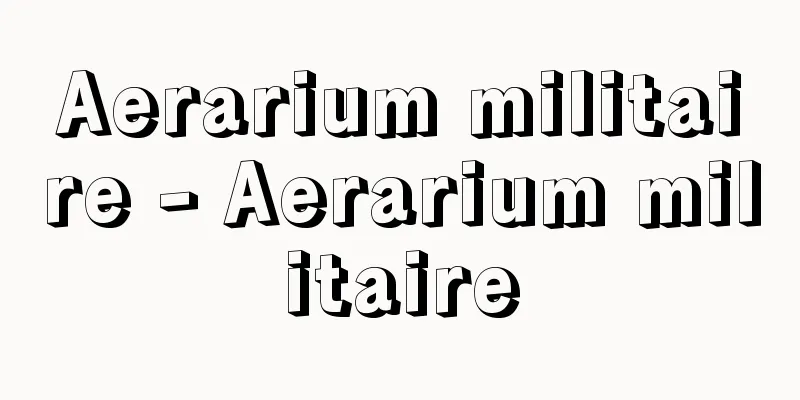Veizla

|
…It was both inconvenient and expensive to bring produce to a central location by car, so it was necessary to go and consume it locally” (Feudal Society, 1949). The Old Norse word veizla meant any kind of feast, including sacrificial feasts, the reception of travelers, weddings, funerals, etc., and also meant giving help or recognition. The word developed specifically in medieval Norway, and came to have the following meanings: *Some of the terminology explanations that mention "veizla" are listed below. Source | Heibonsha World Encyclopedia 2nd Edition | Information |
|
………農産物を車で,全体の中心に集めることは,不便でもあり,費用のかかることであったので,現地に行って消費せざるをえなかった〉(《封建社会》1949)のである。 古北欧語のベイスラveizlaは,供犠の宴をはじめとして旅客の接待,婚礼,葬礼などあらゆる宴をさし,また助力や認知を与えることを意味した。この語は中世ノルウェーで特有の発展をとげ,以下のような意味をもつようになる。… ※「veizla」について言及している用語解説の一部を掲載しています。 出典|株式会社平凡社世界大百科事典 第2版について | 情報 |
Recommend
Fujingaho - Fujingaho
A monthly women's magazine published by Fujin...
witchcraft
...In addition, not only in Japan, but in many so...
Iwaseyama Kofun Group - Iwaseyama Kofun Group
<br /> A group of ancient tombs in Mineyama-...
Manueline style - Manueline style
A Portuguese architectural style from the early 16...
Alaska Eskimo - Alaska Eskimo
…After studying the Caribou Eskimo of the Barren ...
Laberius
…Nepos’s “Livatoria” is a biography of great men ...
Reverse spread
When calculating the insurance premiums paid by po...
Plate plug gauge - Ita plug gauge
…When making a part through machining, a gauge th...
Rumor - Rumor
...Traditional music includes the dance cueca, wh...
Mube - Mube
An evergreen vine of the Akebiaceae family (APG c...
Electrode reaction - denkyokuhannou (English spelling) electrode reaction
This is a heterogeneous electrochemical reaction ...
Emergency Student Mobilization Measures - Emergency Student Mobilization Measures
...Furthermore, the "Wartime Measures for Ed...
Plesiadapis
…The eyes, capable of binocular vision, are posit...
Kanninki - The Chronicle of Patience
A book of Kana Zoushi (Japanese Scriptures). Eight...
Genrin Yamaoka
[Born] 1631 (Kan'ei 8), Ise Yamada [Died] June...









